The Cannes Film Festival 2023 is set to showcase a diverse and exciting selection of films from around the world, especially from across Africa. Among the African titles that will be presented in different sections of the festival, these are films that explore various themes such as crime, exile, love, war, family, and identity, through the stories of compelling characters and the perspectives of talented filmmakers. The films and their directors are introduced below.
First, here are a few key observations about the films collectively:
- Story: Many of these films deal with issues such as identity, exile, conflict, family, and social justice. Some of them also explore the history and culture of their respective countries or regions. For example, “Goodbye Julia” depicts the relationship between two women from different parts of Sudan before the 2011 separation; “Machtat” explores the director’s family history in Casablanca and reflects on the 1981 Bread Riots that shook Morocco; and “Nome” portrays the life of a former guerrilla fighter who returns to his village in Guinea-Bissau after years of war against the Portuguese colonial army.
- Production: Many of these films are international co-productions that involve collaboration between different countries and regions. For example, “Banel & Adama” is a co-production between France, Mali, and Senegal; “Firebrand” is a co-production between Algeria and Brazil; and “Goodbye Julia” is a co-production between Sudan, Egypt, Germany, France, Sweden, and Saudi Arabia. Some of these films also received support from various funds and institutions, such as the World Cinema Fund, the Doha Film Institute, and the CNC.
- Additionally, France is the most represented country in terms of co-production, as it is involved in eight of the 14 titles. France has a long history of supporting and promoting cinema from different parts of the world, especially from Africa and the Middle East. It also has a strong film industry and a large market for films, which makes it an attractive partner for co-production.
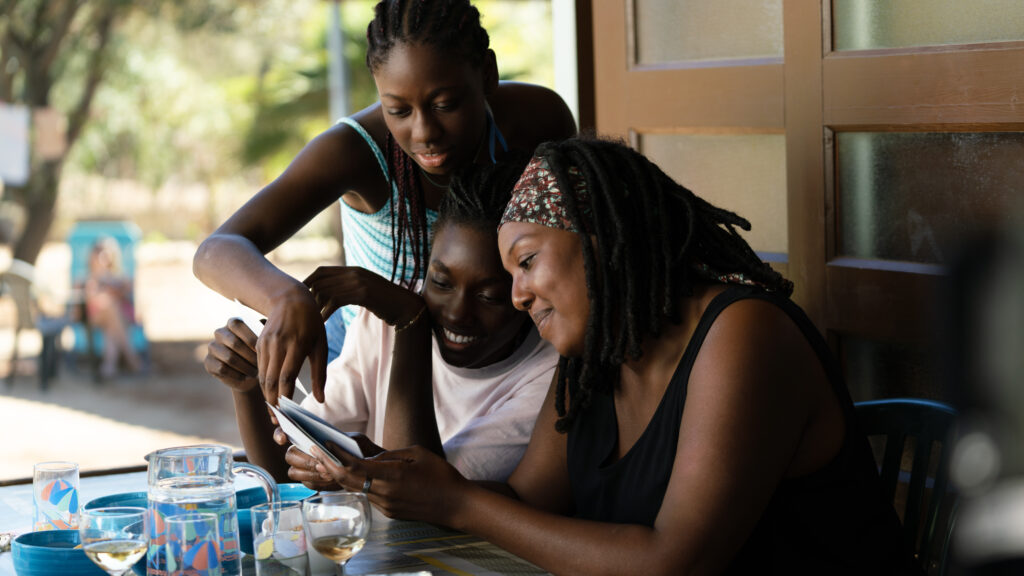
- Country: Many of these films come from countries that are underrepresented or marginalized in the global film industry, and have historically been absent from the Cannes Film Festival. For example, “Goodbye Julia” is the first film from Sudan ever to be presented in the Un Certain Regard section of the Cannes Film Festival; “Omen” is the first feature film directed by Baloji, a Belgian-Congolese rapper and artist; and “Ama Gloria” is a film from Cape Verde, a small island nation in West Africa.
- Gender: Many of these films are directed by or feature women in prominent roles. For example, “Les Filles d’Olfa” is a documentary film that mixes fiction and reality to explore the life stories of a Tunisian mother and her four daughters; “Mambar Pierrette” is a docudrama film that portrays the life of Mambar Pierrette, a seamstress, and mother in Douala, Cameroon; “Goodbye Julia” depicts the complicated relationship between two women, one from the North and one from the South in a separated Sudan; and others.
- Genre: The films span a variety of genres, such as drama, comedy, thriller, documentary, and animation. For example, “Déserts” is a comedy film that follows the adventures of two friends who work for a debt collection agency and are sent to the Moroccan Sahara; “Les Meutes” is a crime thriller film that follows a father and son who are small-time crooks in Casablanca’s criminal underworld.
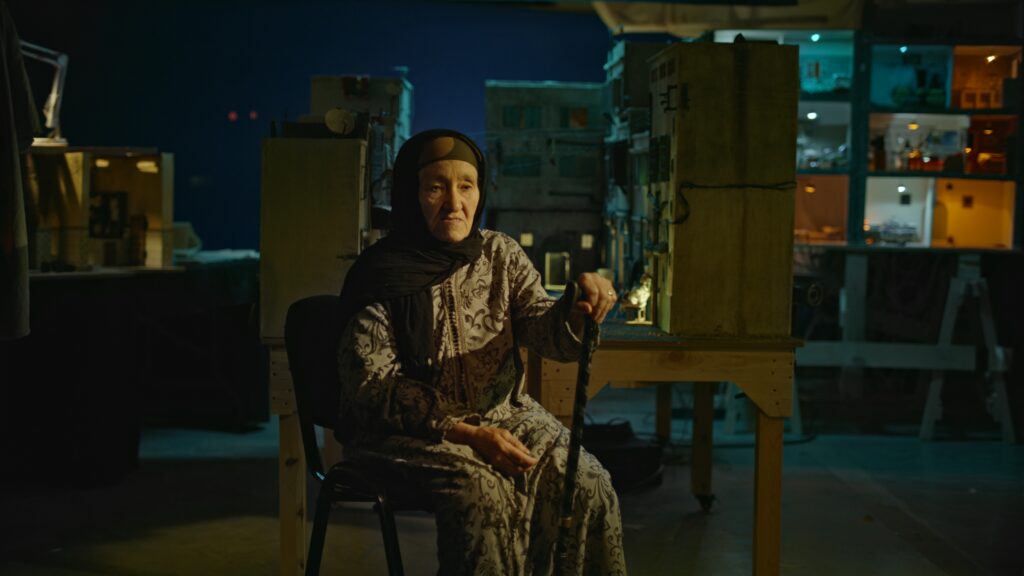
- Style: Each film showcases different styles and techniques of filmmaking, such as realism, surrealism, hybridity, and experimentation. For example, “Omen” is an ensemble film that speaks to hybridity, telling a story about four people accused of being witches and sorcerers; “Machtat” is a documentary film that uses archival footage, animation, and interviews to explore the director’s family history; and “Nome” is a drama film that uses long takes, natural lighting, and non-professional actors to portray the life of a former guerrilla fighter.
Throughout the festival, we will update you on each film as we discover more about them. Some of them will of course be reviewed.
The 76th edition of the Cannes Film Festival runs May 16-27, 2023.
IN COMPETITION
LES FILLES D’OLFA (Tunisia)
- A documentary film that mixes fiction and reality to explore the life stories of a Tunisian mother and her four daughters, two of whom disappeared after joining the Islamic State in Libya.
- Directed by Kaouther Ben Hania, who was nominated for an Oscar for her previous film “The Man Who Sold His Skin.”
- An international co-production between France, Tunisia, Germany, and Saudi Arabia.
- The second participation of a Tunisian production in the Cannes main competition since 1970.
BANEL ET ADAMA (Senegal)
- A romantic drama film that follows a young couple in their late teens who live in a remote village in northern Senegal and decide to live separately from their families so that they can be together.
- Directed by Ramata-Toulaye Sy, a Senegalese screenwriter who makes her feature film debut with this film.
- A co-production between France, Mali, and Senegal.
LE RETOUR (France)
- A drama film that tells the story of Kheìdidja, a woman of “African origin” (the country isn’t specified) who travels to Corsica with her two daughters to take care of the children of a wealthy Parisian family for the summer. It is an opportunity for them to rediscover the island they left fifteen years ago following a tragedy.
- Co-written and directed by Catherine Corsini, a French filmmaker who has directed several films such as “La Belle Saison” and “An Impossible Love.”
- Produced by Chaz Productions, France 3 Cinéma and Le Pacte.
- Controversial due to a scene depicting masturbation involving a minor actress that was not authorized by the authorities and led to the withdrawal of financial support from the Centre national du cinéma et de l’image animée. The scene was later cut from the film. Also accused of sexual assault on set in anonymous letters.
UN CERTAIN REGARD
GOODBYE JULIA (Sudan)
- A drama film that depicts the complicated relationship between two women, one from the North and one from the South, who represent the differences between northern and southern Sudanese communities. It takes place in Khartoum during the last years of Sudan as a united country, shortly before the 2011 separation of South Sudan.
- Directed by Mohamed Kordofani, a Sudanese filmmaker who lives in Bahrain and works as an aviation engineer. It is his first feature film and the first film from Sudan ever to be presented in the Un Certain Regard section of the Cannes Film Festival.
- An international co-production between Sudan, Egypt, Germany, France, Sweden, and Saudi Arabia.
KADIB ABYAD (THE MOTHER OF ALL LIES) (Morocco)
- A documentary film that explores the director’s family history in Casablanca and reflects on the 1981 Bread Riots that shook Morocco.
- Directed by Asmae El Moudir, a Moroccan filmmaker who graduated from La Fémis in Paris. It is her first feature-length documentary.
- Produced by Barney Production, Mont Fleuri Production, and Niko Films.
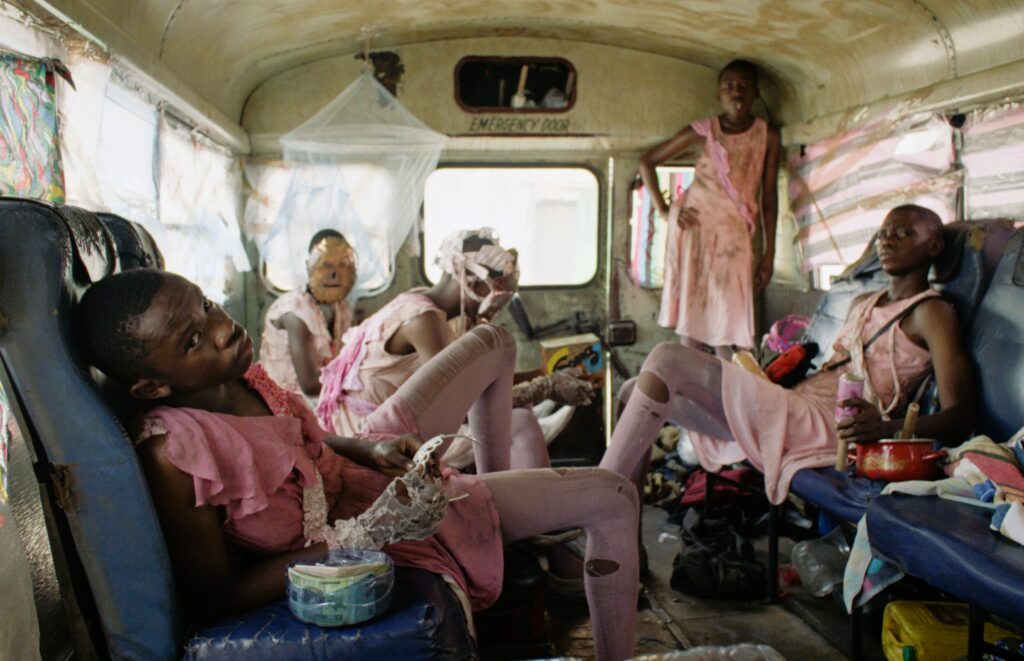
OMEN (AUGURE) (DRC)
- An ensemble film about four people accused of being witches and sorcerers. Despite their misfortune, they find a way to guide each other away from their socially imposed destinies and into the phantasmagoria of Africa.
- Directed by Baloji, a Belgian-Congolese rapper and artist who makes his feature film debut with this film.
- A co-production between Belgium, France, and Congo.
SALEM (France)
- It is a drama film that follows a former gang member who believes his daughter is the only one who can save his community from an apocalyptic curse uttered by a rival gang member in his dying breath123.
- It is directed by Jean-Bernard Marlin, who also co-wrote the film with Olivier Marboeuf.
- It is produced by Unité and Vatos Locos Productions, and co-produced by WBI. The international sales are handled by Goodfellas.
LES MEUTES (THE HOUNDS) (Morocco)
- A crime thriller film that follows a father and son who are small-time crooks in Casablanca’s criminal underworld. When a kidnapping goes wrong, they are stuck with a body to dispose of and have to face the consequences of their actions.
- Directed by Kamal Lazraq, a Moroccan filmmaker who studied at La Fémis in Paris and directed several short films such as Traitors and The Trap. It is his first feature film.
- Produced by Barney Production, Mont Fleuri Production, Beluga Tree, and Entre Chien et Loup.
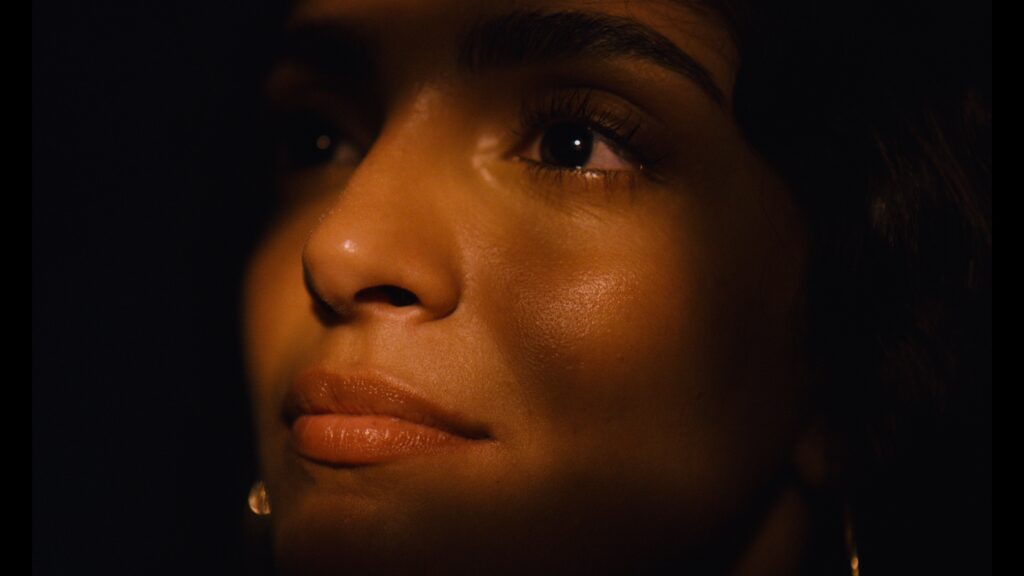
MIDNIGHT SCREENINGS
OMAR LA FRAISE (Algeria)
- It is a drama film that tells the story of Omar, a notorious criminal who is forced to flee to Algeria with his loyal partner Roger, and their struggle to adapt to their new life after dominating the French underworld for decades.
- It is the first feature film directed by Elias Belkeddar, who co-wrote the screenplay with Jérôme Pierrat.
- It is produced by StudioCanal and distributed by Alter Ego Production.
DIRECTORS’ FORTNIGHT
DÉSERTS (Morocco)
- It is a comedy film that follows the adventures of Mehdi and Hamid, two friends who work for a debt collection agency and are sent to the Moroccan Sahara to track down some bad payers.
- It is the fourth feature film directed by Faouzi Bensaïdi, who also wrote the screenplay.
- It is produced by Barney Production and co-produced by Les Films du Nouveau Monde, Agora Films and Les Films de l’Après-Midi.
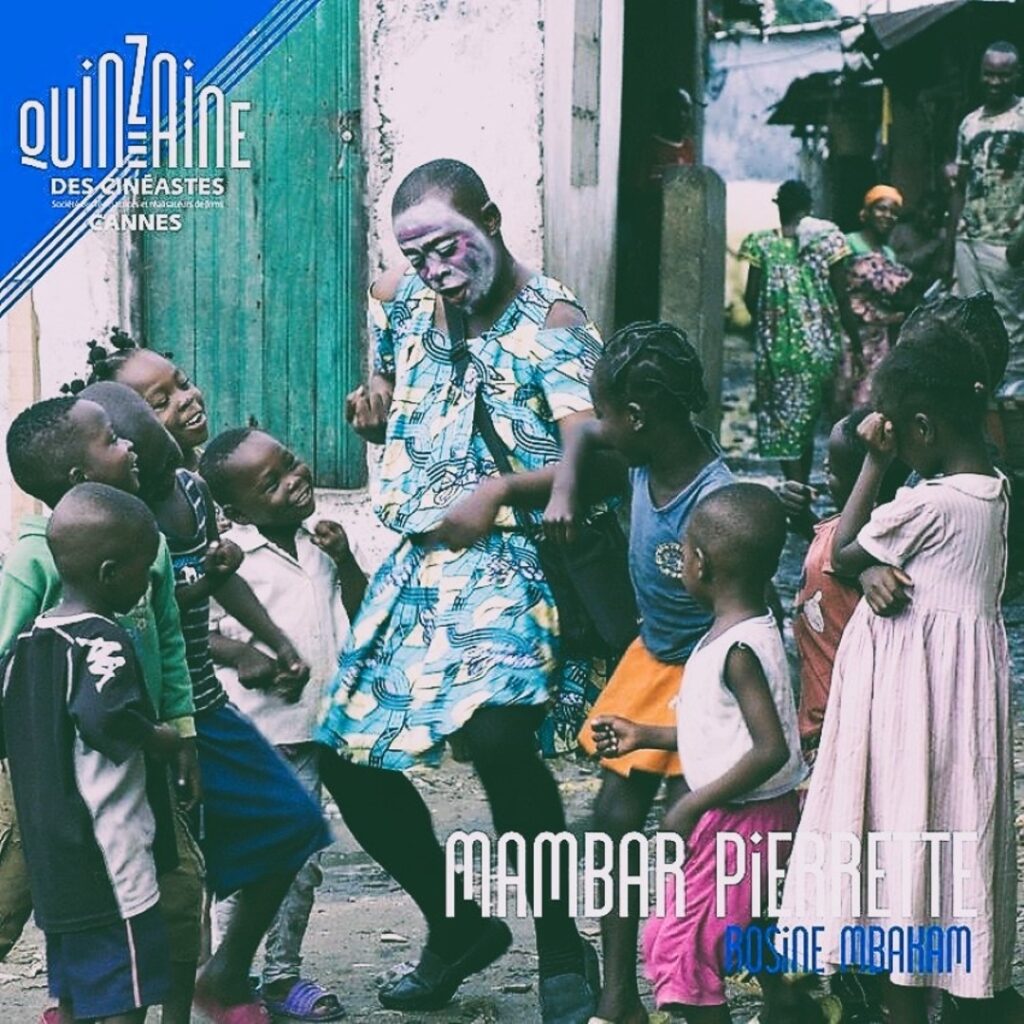
MAMBAR PIERRETTE (Cameroon)
- It is a documentary film that portrays the life of Mambar Pierrette, a seamstress, and mother in Douala, Cameroon, who faces the challenges of rain, preparing for the start of the school year and family life.
- It is directed by Rosine Mbakam, who also produced the film through her company Tândor Productions.
ACID
MACHTAT (Tunisia)
- It is a documentary film that depicts the lives of Fatma and her daughters, Najeh and Waffeh, who work as “machtat”, traditional wedding musicians, in Mahdia, Tunisia.
- It is directed by Sonia Ben Slama, who also wrote the film.
- It is produced by Alter Ego Production and co-produced by Les Films du Tambour de Soie and Cinétéléfilms.
NOME (Guinea-Bissau)
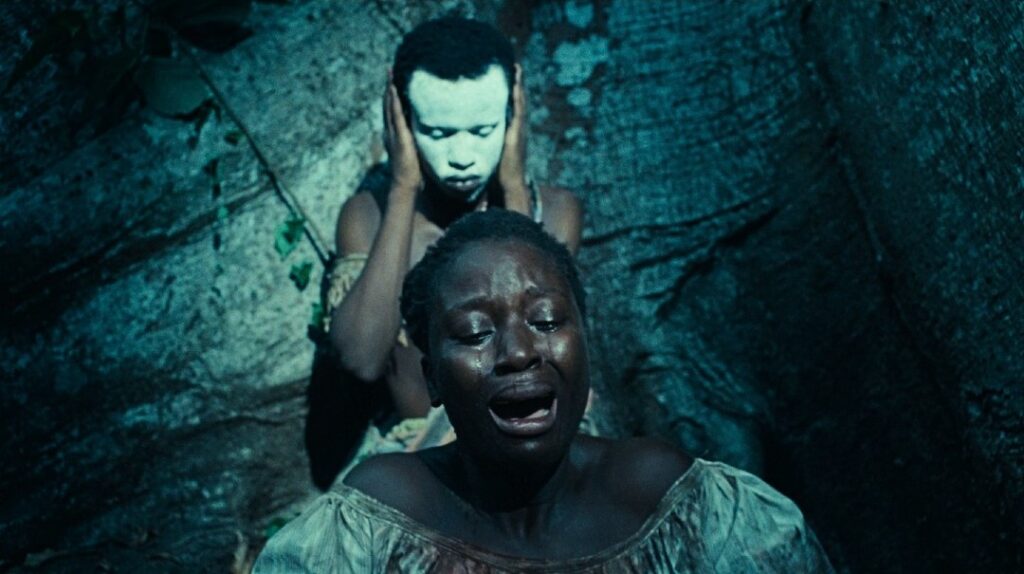
- It is a drama film that depicts the life of Nome, a former guerrilla fighter who returns to his village in Guinea-Bissau after years of war against the Portuguese colonial army.
- It is directed by Sana Na N’Hada, who also co-wrote the film with Virgílio Almeida and Olivier Marboeuf.
- It is produced by Spectre Production and co-produced by LX Filmes, Geba Filmes, and Geração 80.
INTERNATIONAL CRITICS WEEK
AMA GLORIA (Cape Verde)
- Six-year-old Cléo loves her nanny Gloria more than anything. When Gloria must return to Cape Verde to care for her own children, the two must make the most of their last summer together.
- It is directed by Marie Amachoukeli who also wrote the screenplay.
- It is produced by Spectre Production and co-produced by Les Films du Nouveau Monde and Agora Films.
If you appreciate our coverage here and on social media and would like to support us, please consider making a donation today. Your contribution will help us continue to do the work we do in coverage of African cinema and, more importantly, grow the platform so that it reaches its potential, and our comprehensive vision for it. Thank you for your support: https://gofund.me/013bc9f2
